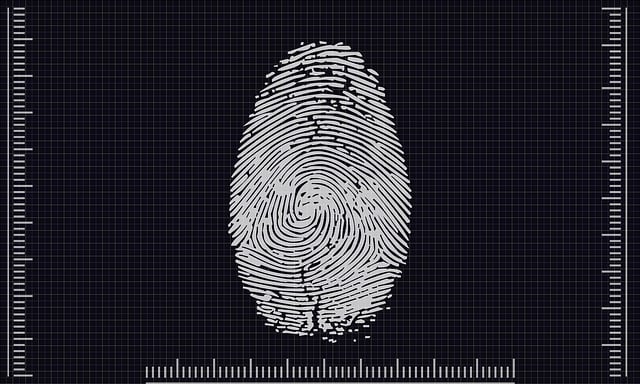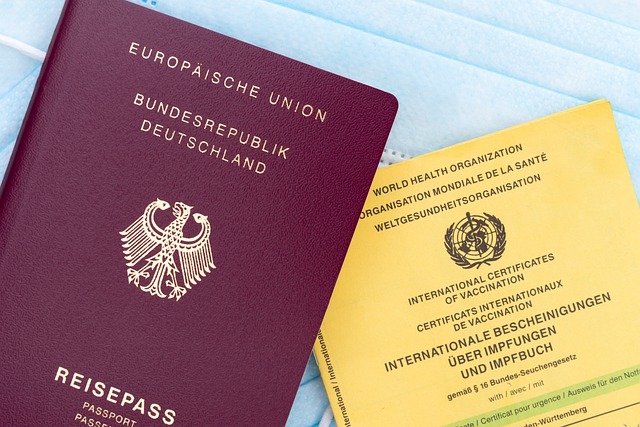When buying a used car, it's crucial to perform a comprehensive VIN check to ensure the vehicle's reported history matches its actual background, including ownership records, accident history, odometer readings, and recall notices. This process involves verifying that the VIN on the vehicle corresponds with the license plate and aligns with the registration details through official channels. Additionally, a License Plate to VIN Matching is recommended to prevent fraudsters from misrepresenting a car's history. The Federal Trade Commission advises consumers to use reliable VIN decoding services to protect themselves against deceptive practices like altered titles and VIN numbers that mask problematic histories such as salvage titles or water damage. By conducting these checks, buyers can safeguard their financial interests and ensure road safety, avoiding the pitfalls of fraudulent sales and misrepresentation in the second-hand automobile market.
When the market for used vehicles is fraught with deceit, discerning buyers must navigate with caution. The Federal Trade Commission’s recent alert underscores the escalating prevalence of fraudulent car sales, where a vehicle’s history is often cloaked in misrepresentation. This deception can be unraveled through diligent VIN authentication and License Plate to VIN Matching processes. As we delve into the intricacies of safeguarding your automotive purchase, this article will guide you through the critical steps to verify a car’s authenticity and protect your investment from the clutches of fraud. Understanding the importance of VIN authentication and employing trusted decoding tools are your best defenses against hidden vehicular histories that can affect both safety and value. Join us as we explore the essential measures to ensure that the vehicle you choose aligns with its official records, leaving no room for scams or surprises.
- Recognizing the Rise of Fraudulent Vehicle Sales
- Understanding VIN Authentication and Its Importance
- The Dangers of Overlooking Vehicle Registration Validation
- License Plate to VIN Matching: A Key Defense Against Deception
- How Scammers Alter Car Details to Hide Their Tracks
- Protect Your Investment with VIN Decoding Tools
- Steps to Ensure Vehicle Authenticity Through Official Records
Recognizing the Rise of Fraudulent Vehicle Sales

In recent times, the prevalence of fraudulent vehicle sales has surged, presenting a significant challenge for consumers and law enforcement alike. These deceptive practices often involve scammers selling vehicles with falsified titles or VIN numbers to conceal their problematic history, including salvage titles, flood damage, or previous accidents that could drastically affect the vehicle’s value and safety. The rise of online marketplaces and the increasing complexity of modern vehicles have both contributed to the growth of this criminal activity. Potential buyers must be vigilant, as the consequences of purchasing a vehicle with a falsified history can range from financial loss to safety hazards. To mitigate these risks, consumers are advised to utilize VIN authentication services that cross-reference the Vehicle Identification Number with official databases to verify the vehicle’s true status and history. This due diligence is crucial in safeguarding against fraud and ensuring that the car being considered for purchase aligns with its legitimate records, thereby protecting both the buyer’s wallet and their safety on the road. The Federal Trade Commission has underscored the importance of such verification processes, emphasizing that a few extra steps during the purchasing process can save buyers from falling victim to these deceptive practices.
Understanding VIN Authentication and Its Importance

When considering the purchase of a used vehicle, understanding the significance of Vehicle Identification Number (VIN) authentication is paramount. A VIN is a unique identifier assigned to every motor vehicle, providing detailed information about the car’s make, model, year, and manufacturing details. This number is crucial in verifying the authenticity of the vehicle’s history and ensuring it has not been altered or tampered with. By using a trusted VIN decoding tool, potential buyers can access a wealth of data that includes past accidents, title history, odometer readings, and recall information, which are vital for assessing the car’s condition and value.
VIN authentication is not merely a step to cross off the checklist; it is an essential due diligence process. It acts as a safeguard against fraudulent activities such as odometer tampering, title washing, or selling vehicles with salvage titles as clean cars. Scammers often exploit unsuspecting buyers by manipulating VIN numbers or replacing critical components from damaged vehicles to disguise their true history. Therefore, it is imperative to conduct a thorough VIN check through authorized databases to ensure the vehicle’s records align with its current status, thereby safeguarding your investment and avoiding potential future complications.
The Dangers of Overlooking Vehicle Registration Validation

The dangers of overlooking vehicle registration validation cannot be overstated when purchasing a used car. A fraudulent seller may present a forged or tampered registration to misrepresent a vehicle’s history, including its mileage, ownership status, or past accidents—information that significantly affects the car’s value and safety. This deception not only defrauds buyers but also puts them at risk of operating a vehicle with unknown mechanical issues or one that has been stolen. The consequences of such oversight can range from financial loss to legal complications if the true owner is discovered after the fact. It is a critical step in the car-buying process to verify the registration through official channels, ensuring that it matches the vehicle’s VIN (Vehicle Identification Number) and corresponds with the car’s actual status. This due diligence protects consumers from falling prey to fraudulent schemes and guarantees that they are making an informed decision when investing in a used vehicle.
In today’s market, where the prevalence of fraudulent vehicle sales is a growing concern, the use of VIN decoding tools has become indispensable. These tools provide a comprehensive report that includes the car’s history, previous owners, accident records, and more. By comparing this information against the vehicle registration validation, buyers can uncover discrepancies that may indicate fraudulent activity. A trusted VIN decoding service acts as a safeguard, offering peace of mind by ensuring the vehicle’s background aligns with the seller’s claims. It is an essential step in the car-buying process that every potential buyer should undertake to safeguard their interests and avoid the pitfalls associated with overlooking vehicle registration validation.
License Plate to VIN Matching: A Key Defense Against Deception

When purchasing a used vehicle, one of the most effective defenses against deception is the License Plate to VIN Matching process. This critical step verifies that the vehicle’s license plate corresponds with its unique Vehicle Identification Number (VIN). Scammers often exploit the lack of scrutiny by swapping VINs or manipulating plates to conceal a car’s history, which may include accidents, flood damage, or mileage tampering. By using this matching process, consumers can uncover discrepancies that could otherwise lead to costly surprises post-purchase. It is imperative for potential buyers to utilize this tool; it serves as a gatekeeper against falling victim to fraudulent sales, ensuring the vehicle’s history aligns with its presented records, thus safeguarding your investment from potential hidden risks. A VIN authentication process extends beyond a cursory check; it delves into the car’s detailed history, including previous owners, accident records, and maintenance history, all of which are crucial in assessing the vehicle’s true condition. Therefore, employing a trusted VIN decoding tool is not just an added step but a necessary due diligence measure for any prospective car buyer.
How Scammers Alter Car Details to Hide Their Tracks

Scammers employ a variety of methods to manipulate car details, obscuring a vehicle’s true history from potential buyers. One common tactic involves swapping Vehicle Identification Numbers (VIN) between cars; a VIN that appears clean is transplanted into a vehicle with a hidden problematic past. This deception can be facilitated by replacing or altering certain components, such as the odometer, to match the falsified history associated with the stolen VIN. Additionally, scammers may forge vehicle registration documents, creating a new identity for a car that has been involved in accidents, has high mileage, or has other issues. They might also exploit loopholes in the reporting systems by failing to disclose the true ownership history or previous damage. These fraudulent activities are designed to mislead buyers into believing they are purchasing a vehicle in better condition than is actually the case, thereby defrauding them of their money and potentially endangering their safety. To avoid falling victim to such schemes, it is crucial to conduct a thorough VIN authentication process and ensure that all provided documentation corresponds accurately with the vehicle’s official records. Utilizing a trusted VIN decoding tool can provide peace of mind by revealing the true state of the car and its history.
Protect Your Investment with VIN Decoding Tools

When considering the purchase of a used vehicle, it’s crucial to safeguard your financial investment from potential fraud. Scammers often exploit the secondary car market by selling vehicles with falsified information, including altered Vehicle Identification Numbers (VIN). These manipulations can mask a car’s true history, which may include accidents, flood damage, or odometer tampering. The Federal Trade Commission has underscored the importance of conducting a thorough VIN authentication process to mitigate these risks. A reliable VIN decoding tool serves as a critical asset in this endeavor. It allows you to cross-reference the vehicle’s VIN with its official records, ensuring that the car’s history matches its documented past. This verification process is indispensable for uncovering discrepancies and confirming the authenticity of the vehicle. By using a trusted VIN decoder, consumers can make informed decisions, thereby protecting their investment and avoiding the pitfalls of fraudulent vehicle sales.
Steps to Ensure Vehicle Authenticity Through Official Records

When considering the purchase of a used vehicle, it is imperative to verify its authenticity through official records. The first step in this process involves obtaining the Vehicle Identification Number (VIN) and using it to perform a comprehensive VIN decoding. This decoding will reveal critical information about the car’s history, including previous owners, accident records, service history, and more. Ensure that the VIN provided by the seller matches the one found on key components of the vehicle, such as the dashboard, engine block, and windshield.
The next crucial step is to perform a Vehicle Registration Validation through your state’s Department of Motor Vehicles (DMV) or equivalent authority. This step confirms that the vehicle’s registration is current and active, and that it corresponds to the VIN you have decoded. Additionally, request a License Plate to VIN Matching to ensure that the plates registered to the car have not been fraudulently attached to another vehicle with a different history. By combining these verification methods, you can significantly reduce the risk of falling victim to fraudulent sales and can make an informed decision about the vehicle’s true condition before finalizing your purchase.
When purchasing a vehicle, due diligence is paramount to safeguard your financial investment and safety. The Federal Trade Commission’s recent advisory underscores the surge in fraudulent car sales and the critical role of VIN authentication processes, such as License Plate to VIN Matching, in combating this deceptive practice. A vehicle’s history is more than a record; it’s a safeguard against potential risks. By employing reliable VIN decoding tools and verifying the car’s details against official records, consumers can outsmart scammers, ensuring the integrity of their purchase. Stay vigilant, and let the VIN speak for the car’s history.



